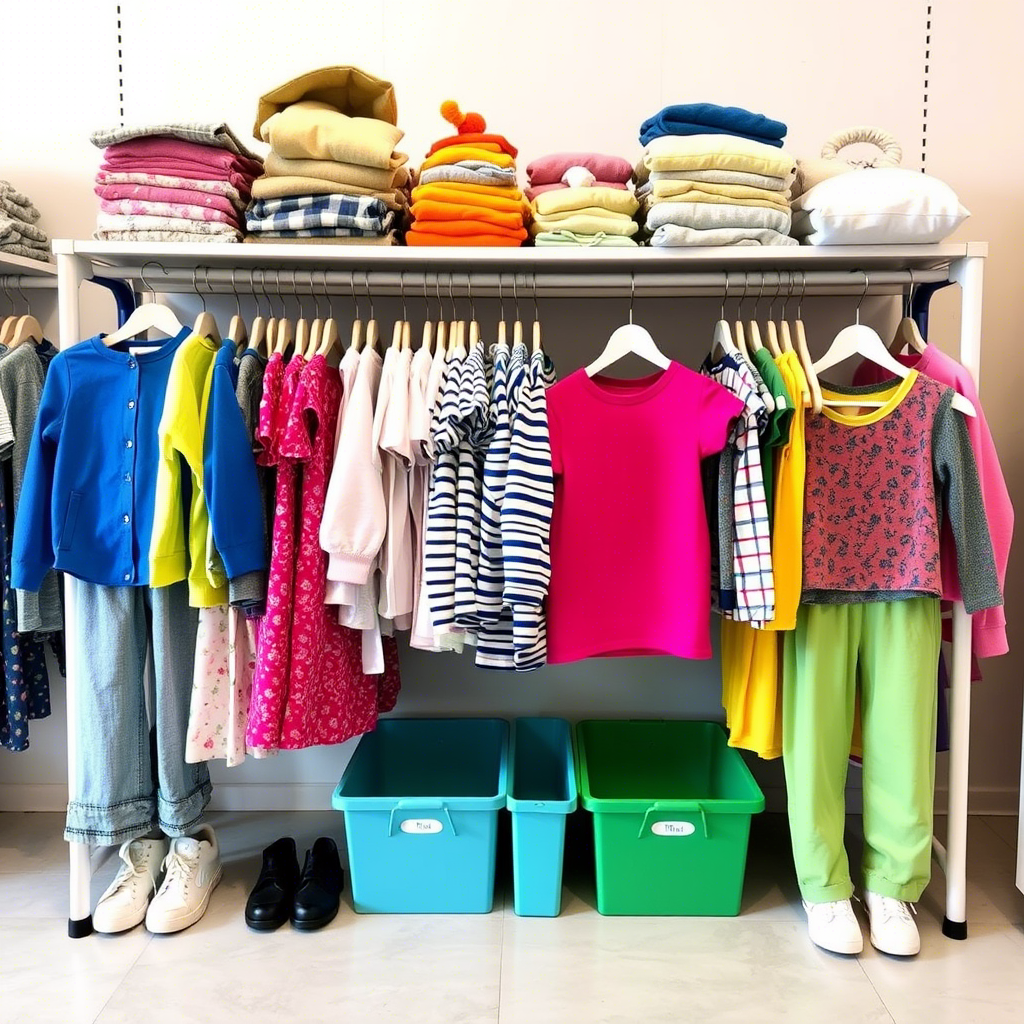Children Clothing Wholesale Distributors for Brands
The children’s clothing market is a thriving industry, driven by increasing demand for high-quality, fashionable, and comfortable apparel. As a brand owner or retailer, partnering with a reliable children clothing wholesale distributor can be a strategic move to stay competitive. Wholesale distributors play a crucial role in connecting manufacturers with retailers, providing a wide range of products, and ensuring timely delivery. In this article, we will explore the significance of children clothing wholesale distributors for brands and provide insights into the benefits of partnering with the right distributor.
Benefits of Partnering with a Children Clothing Wholesale Distributor
Partnering with a children clothing wholesale distributor can bring numerous benefits to brands. Here are a few key advantages:
Access to a Wide Range of Products
- Wholesale distributors typically carry a vast selection of children’s clothing, including various styles, sizes, and fabrics.
- This allows brands to offer their customers a diverse range of products, catering to different tastes and preferences.
- For instance, a distributor like Lezon Kids offers a variety of products, including boys’ coats, which can be a great addition to a brand’s product lineup.

Reduced Operational Costs
- By partnering with a wholesale distributor, brands can reduce their operational costs associated with inventory management, storage, and shipping.
- Distributors typically have established logistics and supply chain networks, enabling them to deliver products efficiently and cost-effectively.
- This allows brands to focus on their core competencies, such as marketing and sales.
Key Considerations When Selecting a Children Clothing Wholesale Distributor
When selecting a children clothing wholesale distributor, there are several key considerations to keep in mind. Here are a few factors to consider:
Product Quality and Compliance
- Ensure the distributor adheres to strict quality control measures and complies with relevant regulations, such as safety standards and labeling requirements.
- Look for distributors that source products from reputable manufacturers and conduct regular quality checks.
- Compliance with regulations is crucial to avoid potential risks and reputational damage.
Inventory Management and Logistics
- Assess the distributor’s inventory management capabilities, including their ability to manage stock levels, track orders, and fulfill shipments promptly.
- A reliable distributor should have a robust logistics network, enabling them to deliver products to retailers and brands efficiently.
- Consider a distributor that offers flexible shipping options and real-time tracking.

Pricing and Payment Terms
- Evaluate the distributor’s pricing strategy and payment terms to ensure they align with your brand’s business model.
- Consider factors such as minimum order quantities, discounts for bulk purchases, and payment terms.
- A distributor that offers competitive pricing and flexible payment terms can help brands maintain profitability.
Best Practices for Collaborating with a Children Clothing Wholesale Distributor
To maximize the benefits of partnering with a children clothing wholesale distributor, brands should adopt best practices that foster a collaborative and mutually beneficial relationship. Here are a few strategies to consider:
Clear Communication
- Establish open and transparent communication channels with the distributor to ensure seamless collaboration.
- Clearly communicate your brand’s requirements, expectations, and concerns to avoid potential misunderstandings.
- Regular communication can help resolve issues promptly and improve overall partnership quality.
Mutual Understanding of Business Goals
- Develop a deep understanding of the distributor’s business goals and objectives to identify areas of mutual benefit.
- Align your brand’s goals with those of the distributor to create a win-win partnership.
- This can involve discussing strategies for growth, product development, and market expansion.

Performance Monitoring and Evaluation
- Regularly monitor and evaluate the distributor’s performance to ensure they meet your brand’s expectations.
- Track key performance indicators (KPIs) such as order fulfillment rates, shipping times, and product quality.
- Provide feedback to the distributor and work together to address any issues or areas for improvement.
For more information on the products offered by Lezon Kids, you can visit their website.
Challenges and Opportunities in the Children Clothing Wholesale Distribution Market
The children clothing wholesale distribution market is not without its challenges. Here are a few key issues that brands and distributors may face:
Managing Supply Chain Complexity
- The children clothing supply chain can be complex, involving multiple stakeholders, including manufacturers, distributors, and retailers.
- Managing this complexity requires effective communication, coordination, and planning.
- Distributors that can navigate these complexities effectively can provide a competitive edge to brands.
Adapting to Changing Consumer Preferences
- Consumer preferences in the children clothing market are constantly evolving, driven by factors such as sustainability, comfort, and fashion trends.
- Distributors must be agile and responsive to these changes, offering products that meet the latest consumer demands.
- Brands that partner with distributors that can adapt to changing consumer preferences can stay ahead of the competition.
Conclusion
Partnering with a reliable children clothing wholesale distributor is a strategic decision that can bring numerous benefits to brands. By understanding the benefits, key considerations, and best practices for collaborating with a distributor, brands can make informed decisions and drive business growth. As the children clothing market continues to evolve, brands that partner with the right distributor can stay competitive, improve operational efficiency, and deliver high-quality products to their customers.

Comments